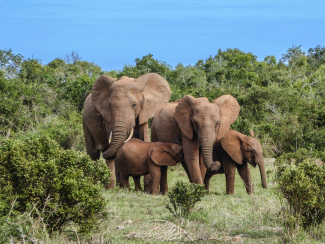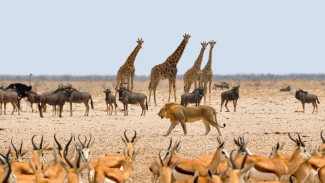FILTER
Displaying 71 - 80 of 321 publications
ABSTRACT Although subsistence poaching is a large threat to wildlife conservation in Southern Africa, this behavior is seldom researched. Our understanding of individual and community-level factors…
| Peer Reviewed | South AfricaThe high seas are known to provide a variety of ecosystem services that are of benefit to society. There have however been few attempts to quantify the welfare impacts of changes to the delivery of…
| Peer Reviewed | Vietnam
Livestock farming plays an important role in global climate change, representing 14.5% of anthropogenic greenhouse gas (GHC) emissions. With 1.9 GtCO2e emitted annually, the Latin American and...
| Policy Brief | Central America and MexicoThis paper has two objectives. The first is to estimate the value of implementing new coastal and marine conservation measures in Vietnam, focussing on the relative benefits of water quality…
| Peer Reviewed | VietnamNational park agencies in Africa often lack incentives to maximize revenue, despite the decline in conservation subsidies from the State. We explore the potential of pricing policy to generate funds…
| Peer Reviewed | South Africa| Peer Reviewed | Uganda
This paper analyses the possibilities for sustainable land use management at farm level to preserve the tropical rainforest in the Lindi region, Tanzania. It investigates the implication of…
| Peer Reviewed | TanzaniaWildlife is widely becoming an important vehicle for rural development in most third-world countries across the globe. With wildlife, as with other conservation and development policies, policymakers…
| Peer Reviewed | South Africa, KenyaIn this study, the discrete choice experiment approach was employed in a survey of the Scottish general public to analyze how respondents make tradeoffs between blue growth potential and marine…
| Peer Reviewed | VietnamThe degradation of any ecosystem services (ES) and the benefits human being enjoy from nature freely involve multifaceted processes such as those in-built environment. The ecological security and…
| Peer Reviewed | Tanzania


